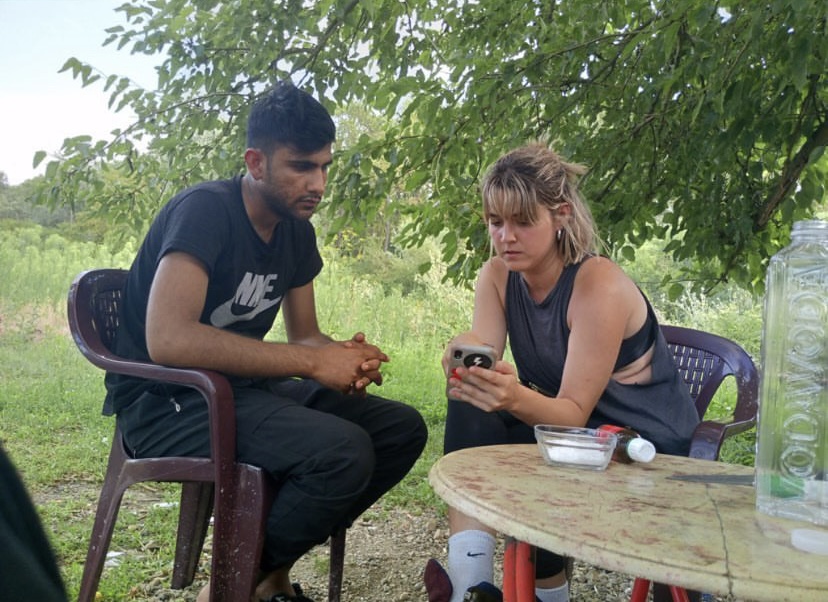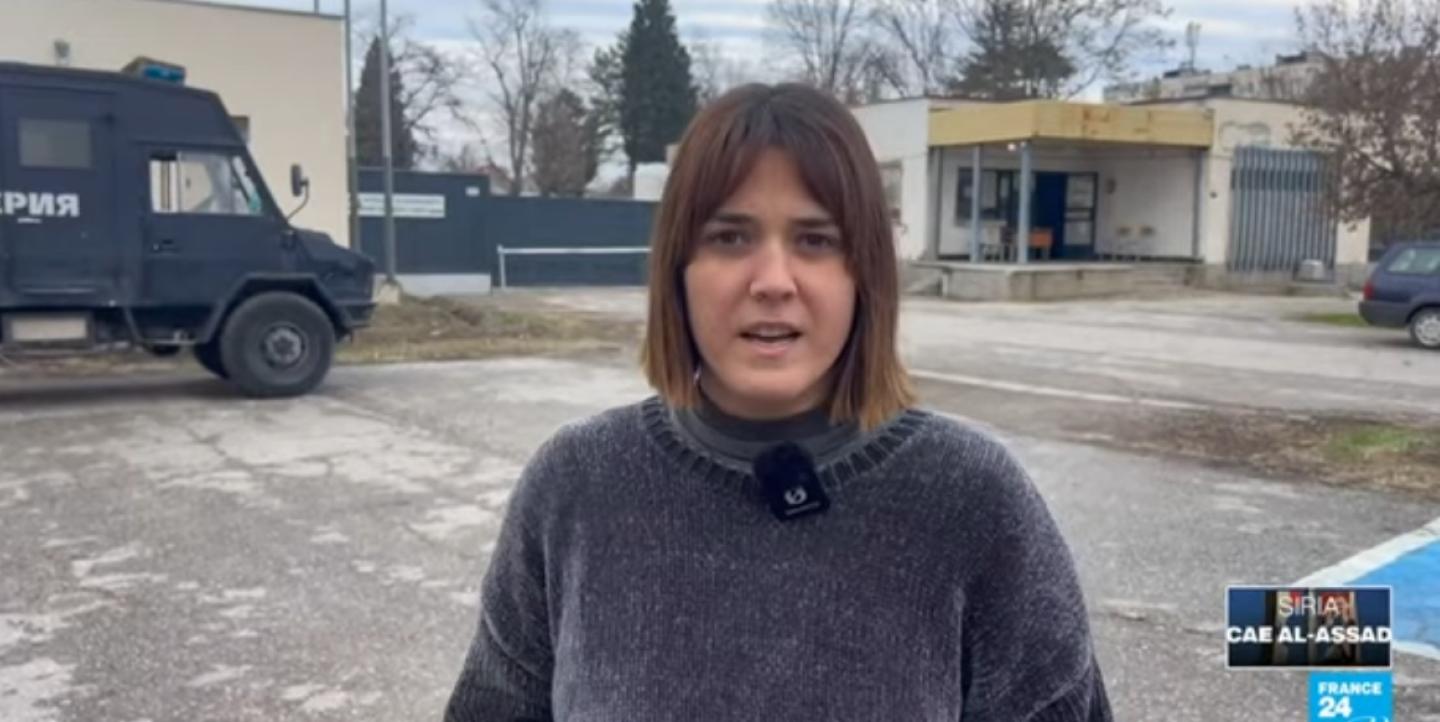Spanish freelance journalist Marta Moreno Guerrero reports on international politics, migration, and social movements. Residing in Pristina, Kosovo today, she focuses much of her coverage on the Balkans.
I spoke with Guerrero about a range of topics, including her upbringing, current reporting projects, Kosovo’s media environment, and the ways in which IJNet has helped her develop professionally.
Here’s our interview.
Would you tell me a bit about your background?
I’ve always known I wanted to be an international reporter, which led me to study journalism and international relations, followed by a master’s in international political journalism. My studies were mainly focused on Turkey and Kurdistan.
My first real professional experience came through an internship at the Press and Communication Department of the Spanish Embassy in New Delhi. It was there that I got a closer look at Asian politics, which only deepened my desire to report from the field. Back in Spain, I worked across different media outlets, both in print and radio, with a significant part of my career spent at Cadena SER.
When the Covid-19 pandemic hit, I was 25 and working in the international section of a newsroom. Unfortunately, my position was canceled because of the crisis. As the situation started to improve, I had the chance to take part in a project in Turkey, where I met people who later opened the door for me to move to the Balkans. Just two months after that project, I found myself settling in Kosovo and starting my freelance journalism career.
The region has not only given me the chance to work on the ground but also to cover topics I’ve been passionate about for as long as I can remember: migration and the rights of ethnic minorities.
Over the past four years, I’ve gained a deeper understanding of the region, increased my journalistic skills, and dedicated myself to reporting its stories with integrity. My goal has always been to go beyond the clichés and prejudices that often surround this region.
What projects are you currently working on?
For more than two years now, I have been closely following the rise of border violence along the so-called Balkan Route. I have been tracking [EU agreements with the WB6], regularly visiting border areas to speak with those directly affected by the violence resulting from them.
The Balkan Route is the most violent path to the EU, yet it remains one of the least covered, especially in Spanish-language media. That is why my focus is not only on exposing the growing brutality linked to these agreements but also on highlighting how EU policies continue to violate international law and disregard the human rights of those seeking refuge on the continent.

Why did you decide to become a journalist originally?
I'm not sure exactly when this ambition began. I just remember that one day, before I had even turned 10, I knew I was going to be an international journalist, and when people asked why, I always answered, “I wanted to change the world.” (I was such an idealistic girl.)
With time, thinking about why, there is always one memory coming to my mind: when I was six I witnessed my first disembarkation of people reaching Spain. I am from a city in the southeast of Spain, where migration is a common phenomenon and people around me tend to blame the people who arrived from only 14 kilometers away for every problem happening in the city.
Being a teenager and knowing where those problems really came from — nothing to do with migration — those prejudices frustrated me deeply. Even more so when I was the one told to shut up. I think this also can explain the topics I choose to cover.
Looking back, I realize journalism was just my form of activism. When you are surrounded by misinformation, prejudices and, many times, hatred, to write the truth becomes an act of resistance.
How would you describe the media environment in Kosovo?
The diverse range of media outlets and professionals in Kosovo has enriched me both professionally and personally. The level of journalism here is incredibly high, and I find myself learning from local colleagues every day. What moves me most is the way Kosovar journalists handle their country’s reality, with depth, honesty, and sensitivity. It’s rare to find a media landscape as engaged and committed as the one here. From my very first day, I was lucky to find colleagues who guided and supported me.
If there’s one thing Kosovo’s media environment has taught me, it’s the importance of solidarity. Even though I’m the only Spanish journalist here and often work alone, I can always rely on local professionals. They have provided me with stories, helped with logistics, and explained regional nuances that only those who grew up here can understand.
In terms of journalistic work, the depth and variety of coverage in Kosovo, and the Balkan media landscape, make it one of the most impressive in Europe. Journalists here often have to navigate government obstacles, yet they continue to produce some of the most insightful and courageous reporting on the continent. And the number of organizations and activists protecting journalists’ work is something many countries in Western Europe should learn from.
How has IJNet supported your work?
Given the topics I tend to cover, having strong investigative tools is essential. When I started in this field at just 26, diving into such complex stories, IJNet provided me with invaluable resources — courses, links, websites, podcasts, and more — that helped shape my path toward investigative journalism. Without that support, it would have been nearly impossible to develop my current projects with the depth and quality they deserve.
On the other hand, IJNet has also been an incredible platform for connecting with fellow journalists. Since becoming a freelancer, I’ve learned that having a network isn’t just helpful, it’s essential. The connections I’ve made through IJNet have been key to navigating this career and continuing to grow as a journalist.
Being featured as IJNet’s Journalist of the Month makes me feel like part of that professional network that has taught me so much — and that I hope to keep learning from. More than anything, I want to be there for other journalists the way others have been there for me. I also see this as an opportunity to expand my connections, find new opportunities, and continue growing in this profession.
This interview has been edited lightly.
Main image courtesy of Guerrero.


